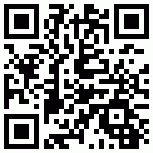An Iranian researcher, Maryam Sadeqi, has produced a small microscope which can diagnose skin cancer with using cell phone.

 QR code
QR code

Iranian researcher designs cell phone to diagnose skin cancer
29 Dec 2013 - 11:05
An Iranian researcher, Maryam Sadeqi, has produced a small microscope which can diagnose skin cancer with using cell phone.
Skin cancer is both common and potentially deadly, with risks increasing the longer it goes undetected.
So it made little sense to Maryam Sadeghi that people can wait days, weeks or even months to find out if suspicious moles were something to worry about.
So she created MoleScope, a thumb-sized microscope designed to use with a smartphone to collect and manage images and, if necessary, send them to specialists to determine whether further examination or treatment is required.
“We can reduce unnecessary visits and provide better quality of care by giving priority to patients who need to have immediate access,” said Sadeghi, who obtained her PhD in computing science from Simon Fraser University and is currently heading the Digital Health Hub, a Surrey-based innovation centre.
MoleScope is also designed to help users track and monitor their moles over time – a task that can be challenging if people have scores or even hundreds of moles.
When it comes to skin cancer, much relies on visual clues, which are perfectly suited to a system that allows users to send images to experts for analysis.
MoleScope is designed to provide high-quality images, remote diagnosis and patient management – qualities that would give it an edge over existing apps and services that may provide one or two of those attributes, but not all three, according to a MetaOptima presentation.
Dr. Sadeghi and fellow researchers developed the product with help from SFU’s Venture Connection, which connects student researchers with business mentors and other entrepreneurial help.
MoleScope software is designed to help consumers and doctors track and compare information over time – a particularly helpful feature for people who might be monitoring dozens or even hundreds of moles.
The system would dovetail with existing telehealth initiatives in B.C. and Alberta that are using technology to provide diagnostic and care services to people in remote locations in both provinces.
The MoleScope system could prove most useful in rural and remote areas that don’t have ready access to skin specialists, says Vancouver businessman Hugh MacNaught, who helped mentor MetaOptima.
HK
Story Code: 149059